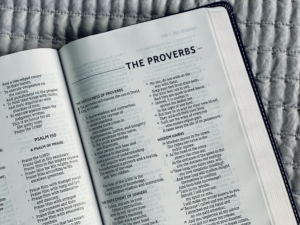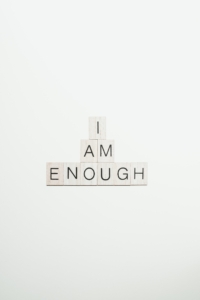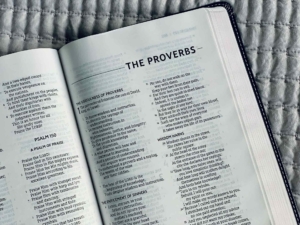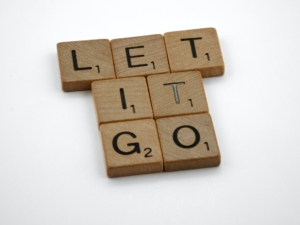How to Recognize Codependency and Narcissism in Your Friendships
Recognizing codependency and narcissism in your friendships may not seem relatable, but it’s worth reflecting on as you interact with friends of varying degrees. You will have a variety of friendships in your lifetime: co-workers, book club friends, workout buddies, lifelong friends, and casual friends who share a specific season of life. Knowing whether or not your friend is codependent and how that impacts narcissistic tendencies can help you and them.
What is narcissism?
The Diagnostic and Statistical Manual of Mental Disorders, 5th edition, says that narcissism can be adjacent to a mental health disorder known as Narcissistic Personality Disorder (NPD). However, narcissistic tendencies don’t necessarily qualify a person as having NPD.
 Unfortunately, both terms (narcissism and codependency) have undergone a platform mutation in recent years to their detriment because of social media, public overuse, and misunderstanding. Narcissism itself isn’t evil or all bad. It often stems from poor self-esteem and exemplifies someone who is hurting.
Unfortunately, both terms (narcissism and codependency) have undergone a platform mutation in recent years to their detriment because of social media, public overuse, and misunderstanding. Narcissism itself isn’t evil or all bad. It often stems from poor self-esteem and exemplifies someone who is hurting.
While NPD shows a pervasive pattern of at least five out of nine diagnostic traits and usually starts becoming more consistent in young adulthood, having some narcissistic traits does not necessarily mean you or a friend has NPD. If a person has true NPD, they meet at least five of the following nine criteria in all areas of their life, not just in one or two areas or environments.
- They think of themselves as more important than others.
- They imagine they’re deserving of or will automatically inherit certain rewards or achievements, even if there isn’t evidence to indicate such.
- They believe they are special or operate on a “different playing field” of sorts. More than seeing themselves as self-important (as in No. 1), this tendency is to see others through a lens of haughtiness.
- They need a high degree of validation from others. Think of the leader of the “mean girl” pack. She surrounds herself with “yes” girls who laud her because she needs the admiration.
- They have an unrealistic expectation about what others owe them or should give them. Another way to state this is a sense of entitlement.
- They have a tendency toward – and establish a pattern of this behavior – exploiting others for their own gain and/or manipulating others to get what they want or to get out of doing something they don’t want to do.
- They’re unwilling to listen to or try to empathize with someone else’s perspective or emotional needs.
- Envy is frequent, and it can be their envy of others or their misconception that others are envious of them.
- They struggle with arrogance in multiple arenas of life.
What is codependency?
 Unlike narcissism, codependency is not a disorder recognized by the DSM-5. It’s a behavioral pattern that was first used in the 1970s, made more universal in the 1980s when a book, Codependent No More by Melody Beattie was used to help those struggling with substance use disorder (SUD). Typically, a person with codependent behavioral patterns will often mask the consequences of another person’s behavior.
Unlike narcissism, codependency is not a disorder recognized by the DSM-5. It’s a behavioral pattern that was first used in the 1970s, made more universal in the 1980s when a book, Codependent No More by Melody Beattie was used to help those struggling with substance use disorder (SUD). Typically, a person with codependent behavioral patterns will often mask the consequences of another person’s behavior.
The person doing the masking may believe they’re protecting their loved one from negative consequences or hardship. What often happens, however, is an unhealthy attachment that requires a level of maintenance that can’t be sustained over time. It can create fractured relationships due to unclear boundaries.
Similar to narcissism, the term codependent has developed a negative reputation when, in fact, it’s simply a pattern of relating that can be unlearned when a person forms healthy attachments. Some markers of codependency include the following:
- Refusing to do things or go places unless the other person also wants to do them or go with you.
- Excusing a friend’s poor behavior (repeatedly) when it’s been hurtful to you.
- Feeling guilty when you take time out for yourself instead of serving your friend’s or loved one’s needs.
- Apologizing without working toward reconciliation, even if the fault isn’t yours, just to avoid conflict.
- Doing more than your share when your friend could also contribute. An example might be agreeing to go on a trip together, but you do all the planning, pay for the trip, and drive, while your friend simply adds a few recommendations.
- Feeling alone or like your friend doesn’t ask curious questions about your life often, yet you don’t mention it for fear of losing your friendship or not pleasing her.
How Codependency and Narcissism Arise from Similar Struggles
 On the surface, it appears that codependent people struggle with low self-esteem and, therefore, may not assert themselves or their own opinions. This is not an accurate portrayal of a codependent-tending person. Just as a narcissistic person does not always think of themselves as better than others or isn’t always toxic and full of drama. However, the two can share similar roots.
On the surface, it appears that codependent people struggle with low self-esteem and, therefore, may not assert themselves or their own opinions. This is not an accurate portrayal of a codependent-tending person. Just as a narcissistic person does not always think of themselves as better than others or isn’t always toxic and full of drama. However, the two can share similar roots.
When a person is codependent, they tend to learn those patterns of behavior from a parent or caregiver who did not give them the attention they needed as a child, or they were incapable of functioning as a healthy emotional adult. Either way, the person learned to cope by letting personal boundaries go by the wayside.
One example of this is when a person grows up and makes a friend at work. He had an alcoholic mother who often asked him to hide her receipts for wine from his dad so he wouldn’t know how much she was drinking.
As a young teen, he thought he was creating a more peaceful home life by saving the relational tension between his mom and dad. In reality, it was edging him toward an inability to develop healthy boundaries, recognizing it was not his job to save his mom from the consequences of her destructive behavior.
Then, in the friendship this adult man has with a co-worker, he isn’t able to see that the co-worker is taking advantage of their friendship by asking him to take the fall whenever he fails to prepare for a work presentation or wants to get by with leaving the office early. He asks his friend to cover for him by saying he had a doctor’s appointment, and this sets up a continual pattern of learned behavior and lack of boundaries.
Narcissistic personality tendencies can also be rooted in a struggle with boundaries. If as a young teen, someone struggles to see their worth and value, it’s usually referred to as low self-esteem. Rather than recognizing this and looking for healthy ways to develop confidence, a teenager may make fun of others to make herself feel better.
This kind of behavior – unchecked – can lead to dangerous adult relationships. She may use a grandiose view of herself to mask her low self-value and expect others to see her self-importance in the same light.
What to Do If You Recognize Codependency and Narcissism in Yourself or a Friend
 One of the downsides of the public using terms that are clinical in nature – such as toxic, narcissistic, or codependent – is that they can take on inaccurate meanings. A good way to respond if you think you or your friend exhibits some traits of codependency or narcissism is to be curious, gentle, and compassionate.
One of the downsides of the public using terms that are clinical in nature – such as toxic, narcissistic, or codependent – is that they can take on inaccurate meanings. A good way to respond if you think you or your friend exhibits some traits of codependency or narcissism is to be curious, gentle, and compassionate.
While it doesn’t mean you have to let your friend override your personal boundaries, you can ask compassionate questions if she says something like, “I can’t go through the line without you. I’m too scared.”
An appropriate, boundary-setting response might be, “I’m enjoying my lunch while it’s hot, so I am going to stay here. But I wonder why it’s hard for you to go alone. Is there someone at the head of the line who makes you nervous?” This lets her know you care, but also holds a firm boundary about wanting to eat your lunch while it’s hot.
Other appropriate responses include recognizing when these qualities are present in yourself and avoiding self-blame or negative self-thoughts. Instead, you can reflect on an appropriate next step.
It might be looking for a counselor who can help you examine where your learned behaviors come from and what kind of solutions are available to help you overcome them. To find a compassionate, trauma-informed counselor, our offices are ready to help with your inquiries when you are comfortable reaching out.
Photos:
“Sitting on the Mountaintop”, Courtesy of Matheus Ferrero, Unsplash.com, CC0 License; “Talk to the Hand”, Courtesy of Obie Fernandez, Unsplash.com, CC0 License; “Polite Signs”, Courtesy of mark tulin, Unsplash.com, CC0 License; “Boundary Line”, Courtesy of Erin Larson, Unsplash.com, CC0 License

 The term ‘codependency’ is one that’s gained currency in the last decade or so. It describes a variety of unhealthy relationship behaviors that can be caused in several ways. However, at the heart of codependency is an underdeveloped or poor sense of self. If a person doesn’t develop a clear sense of who they are, their values, and their boundaries, they are more prone to developing codependent patterns of behavior in relationships with others.
The term ‘codependency’ is one that’s gained currency in the last decade or so. It describes a variety of unhealthy relationship behaviors that can be caused in several ways. However, at the heart of codependency is an underdeveloped or poor sense of self. If a person doesn’t develop a clear sense of who they are, their values, and their boundaries, they are more prone to developing codependent patterns of behavior in relationships with others. There isn’t a single and straightforward path toward codependency. A person develops a poor sense of self and has difficulty maintaining healthy boundaries with others for a variety of reasons. The process of developing a healthy sense of self was often disrupted by experiences such as childhood trauma or experiences such as abandonment, or neglect. These can be in the form of a parent dying, parental divorce, or being literally abandoned.
There isn’t a single and straightforward path toward codependency. A person develops a poor sense of self and has difficulty maintaining healthy boundaries with others for a variety of reasons. The process of developing a healthy sense of self was often disrupted by experiences such as childhood trauma or experiences such as abandonment, or neglect. These can be in the form of a parent dying, parental divorce, or being literally abandoned. Depending on your situation, societal or cultural expectations can also play a role in nurturing codependency. If, for instance, there’s more of an emphasis on the collective – society, your local community, or the family – over the individual, that may lead to codependent behaviors. While it’s important to look out for others and love them well, it can be detrimental to do so without regard to personal well-being.
Depending on your situation, societal or cultural expectations can also play a role in nurturing codependency. If, for instance, there’s more of an emphasis on the collective – society, your local community, or the family – over the individual, that may lead to codependent behaviors. While it’s important to look out for others and love them well, it can be detrimental to do so without regard to personal well-being. A friendship, even a good friendship, can be overcome by codependent dynamics. If a friend is in trouble and you bail them out, that’s one thing. However, if you begin to fall into that pattern of relating to each other, a codependent dynamic can develop. A healthy friendship can become codependent in several ways, or it might commence between two people with codependent tendencies and patterns of behavior. Recovery, however, is possible.
A friendship, even a good friendship, can be overcome by codependent dynamics. If a friend is in trouble and you bail them out, that’s one thing. However, if you begin to fall into that pattern of relating to each other, a codependent dynamic can develop. A healthy friendship can become codependent in several ways, or it might commence between two people with codependent tendencies and patterns of behavior. Recovery, however, is possible. There’s a lot that’s been written about friendship. One of the best reflections on friendship was produced by C. S. Lewis, and in The Four Loves, he has these two gems: “Friendship …is born at the moment when one man says to another ‘What! You too? I thought that no one but myself…’”. He also wrote: “Friendship is unnecessary, like philosophy, like art…. It has no survival value; rather it is one of those things which give value to survival.”
There’s a lot that’s been written about friendship. One of the best reflections on friendship was produced by C. S. Lewis, and in The Four Loves, he has these two gems: “Friendship …is born at the moment when one man says to another ‘What! You too? I thought that no one but myself…’”. He also wrote: “Friendship is unnecessary, like philosophy, like art…. It has no survival value; rather it is one of those things which give value to survival.” The lack of boundaries is one of the main things that can help you identify a codependent dynamic in a relationship. To address codependence in your friendship, you need to be able to identify it, whether you’re the codependent one, or the one who’s benefitting from this dynamic. Some of the signs to look out for include the following:
The lack of boundaries is one of the main things that can help you identify a codependent dynamic in a relationship. To address codependence in your friendship, you need to be able to identify it, whether you’re the codependent one, or the one who’s benefitting from this dynamic. Some of the signs to look out for include the following: This is one of the reasons why a codependent person will stay in an unhealthy relationship, or why they will struggle to say “no” or to give valid criticism about their friend’s behavior – it may mean that their friend won’t give them the approval they crave, so it’s easier to just go with the flow.
This is one of the reasons why a codependent person will stay in an unhealthy relationship, or why they will struggle to say “no” or to give valid criticism about their friend’s behavior – it may mean that their friend won’t give them the approval they crave, so it’s easier to just go with the flow. Talk with your friend You should have open and honest communication with your friend, discussing your feelings and concerns about the dynamics of the relationship. You can both, in your own way, work together toward a healthier, more balanced relationship.
Talk with your friend You should have open and honest communication with your friend, discussing your feelings and concerns about the dynamics of the relationship. You can both, in your own way, work together toward a healthier, more balanced relationship. Between deadlines and competing demands, responsibilities at work can destabilize us and cause us to feel overwhelmed when serving the marketplace with our gifts. This may encumber us with an unnecessary burden of responsibility, goading us into codependency at work, trying to save the world and our workplace.
Between deadlines and competing demands, responsibilities at work can destabilize us and cause us to feel overwhelmed when serving the marketplace with our gifts. This may encumber us with an unnecessary burden of responsibility, goading us into codependency at work, trying to save the world and our workplace. We need God’s wisdom to discern what is ours to own and how to make a distinction between supporting others at work without codependent control. When we ask, the Holy Spirit will help us to release such unnecessary burdens, nurture healthy boundaries, and build better balance in life and work.
We need God’s wisdom to discern what is ours to own and how to make a distinction between supporting others at work without codependent control. When we ask, the Holy Spirit will help us to release such unnecessary burdens, nurture healthy boundaries, and build better balance in life and work. If someone has codependent behaviors, this equates to a lack of boundaries, and a client who is struggling in this area will need help working through issues of self-esteem and personal identity.
If someone has codependent behaviors, this equates to a lack of boundaries, and a client who is struggling in this area will need help working through issues of self-esteem and personal identity.  Social media tends to magnify underlying personality issues such as narcissism or codependency. We can see that while using social media, everyone is mostly competing to be recognized, “liked,” and “favorited” by others. Accomplishments, material possessions, and experiences are all fodder for public admiration.
Social media tends to magnify underlying personality issues such as narcissism or codependency. We can see that while using social media, everyone is mostly competing to be recognized, “liked,” and “favorited” by others. Accomplishments, material possessions, and experiences are all fodder for public admiration. If you recognize codependent traits in yourself, don’t lose hope. You are not defective or inadequate; you just need to work through the heart issues and learn healthier ways of relating to others.
If you recognize codependent traits in yourself, don’t lose hope. You are not defective or inadequate; you just need to work through the heart issues and learn healthier ways of relating to others. Not all mental health professionals agree on how codependency presents. But there do tend to be some common symptoms. The following list is adapted from Codependent No More. A person with codependency:
Not all mental health professionals agree on how codependency presents. But there do tend to be some common symptoms. The following list is adapted from Codependent No More. A person with codependency: A codependent is someone who seeks out, consciously or even subconsciously, one-sided relationships that are oftentimes emotionally damaging and possibly even abusive. In this kind of relationship, the codependent usually tries to keep the other person happy by sacrificing personal time, wants, or needs. This “other person” is usually the spouse, but it may also be a parent, sibling, child, colleague, or a close friend.
A codependent is someone who seeks out, consciously or even subconsciously, one-sided relationships that are oftentimes emotionally damaging and possibly even abusive. In this kind of relationship, the codependent usually tries to keep the other person happy by sacrificing personal time, wants, or needs. This “other person” is usually the spouse, but it may also be a parent, sibling, child, colleague, or a close friend. Other unhealthy traits of a codependent include low self-esteem, constant fear of abandonment, and an uncertainty of who they really are. In fact, if a person has been a codependent for quite some time, they may have addictive behaviors or may be suffering from symptoms of major depression.
Other unhealthy traits of a codependent include low self-esteem, constant fear of abandonment, and an uncertainty of who they really are. In fact, if a person has been a codependent for quite some time, they may have addictive behaviors or may be suffering from symptoms of major depression. It is also possible that the codependent is afraid that the “other” will leave them, so they try to be a “good” wife, husband, or child. At work, there may be that fear of rejection by peers or their superiors, which causes the codependent to work extra hard, even if it is no longer healthy.
It is also possible that the codependent is afraid that the “other” will leave them, so they try to be a “good” wife, husband, or child. At work, there may be that fear of rejection by peers or their superiors, which causes the codependent to work extra hard, even if it is no longer healthy. As in all problems, the initial step is to acknowledge that there is a problem with codependency. Next, one must seek for help, since overcoming it on your own will be very difficult indeed.
As in all problems, the initial step is to acknowledge that there is a problem with codependency. Next, one must seek for help, since overcoming it on your own will be very difficult indeed. Codependents may feel as if they are some sort of hero for constantly saving the addict from themselves. But in reality, they are not helping the addict recover and are only compounding their issues. You could say that the codependent person has a control addiction in the same way that the addict does for a particular substance.
Codependents may feel as if they are some sort of hero for constantly saving the addict from themselves. But in reality, they are not helping the addict recover and are only compounding their issues. You could say that the codependent person has a control addiction in the same way that the addict does for a particular substance. Many would describe the Christian life as “just one beggar showing another beggar where to get some bread.” This is a brilliant quote as it sums up what the Christian faith is all about. We all need the Lord and our aim should be to point each other to Him.
Many would describe the Christian life as “just one beggar showing another beggar where to get some bread.” This is a brilliant quote as it sums up what the Christian faith is all about. We all need the Lord and our aim should be to point each other to Him. Those who are more susceptible to codependency are often seeking after a predictable way to attain a sense of value that has been lacking in their past.
Those who are more susceptible to codependency are often seeking after a predictable way to attain a sense of value that has been lacking in their past. Why do you look at the speck of sawdust in your brother’s eye and pay no attention to the plank in your own eye? (Matthew 7:3)
Why do you look at the speck of sawdust in your brother’s eye and pay no attention to the plank in your own eye? (Matthew 7:3) The “need to be needed” fuel’s the life of a codependent. In the book, Codependence: Healing the Human Condition, Charles L. Whitfield calls codependence a “disease of lost selfhood.”
The “need to be needed” fuel’s the life of a codependent. In the book, Codependence: Healing the Human Condition, Charles L. Whitfield calls codependence a “disease of lost selfhood.” Codependents love to help. This is most often the case because they believe people are incapable of taking care of themselves.
Codependents love to help. This is most often the case because they believe people are incapable of taking care of themselves. Codependents worry about everything and everybody to the point of obsession. They become enmeshed with others and are often anxious about other’s problems. They focus all their energy on someone else as a result of their deeply ingrained dependency. Often, they can’t let go of a relationship because of their obsession with that person.
Codependents worry about everything and everybody to the point of obsession. They become enmeshed with others and are often anxious about other’s problems. They focus all their energy on someone else as a result of their deeply ingrained dependency. Often, they can’t let go of a relationship because of their obsession with that person. 11. Lack of trust
11. Lack of trust